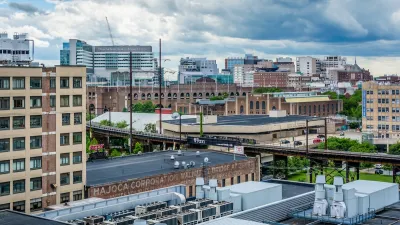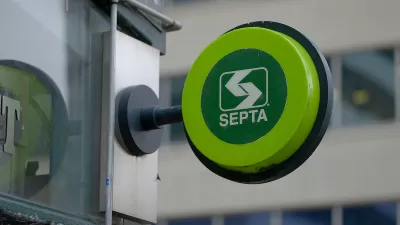For a few tantalizing months it seemed like the state of Pennsylvania might have the funding to spare an expansion of the Keystone Opportunity Zones program.
"Over the summer, as the dust began to settle on another Pennsylvania budget negotiation, officials in Philadelphia’s Commerce Department realized that the state had opened the door for an expansion of Keystone Opportunity Zones, a program that’s meant to encourage investment in vacant and blighted areas by waiving certain state and local taxes," reports Jared Brey.
In an attempt to take advantage of the opportunity, the city of Philadelphia's Commerce Department "identified 85 properties covering 322 acres of land, lobbied City Council members to approve the selections, secured agreements from participating property owners that payments in lieu of taxes (PILOTs) would keep the School District from losing any funding, and submitted the application."
Philadelphia wasn't alone: The state also received applications from Elk County, Chester County, and Clearfield County.
None of the applications will be accepted, however, and they were never really going to be, according to Brey's analysis, which also surveys some of the sites on Philadelphia's list to determine whether the lost KOZ opportunity will make or break development proposals.

Manufactured Crisis: Losing the Nation’s Largest Source of Unsubsidized Affordable Housing
Manufactured housing communities have long been an affordable housing option for millions of people living in the U.S., but that affordability is disappearing rapidly. How did we get here?

Americans May Be Stuck — But Why?
Americans are moving a lot less than they once did, and that is a problem. While Yoni Applebaum, in his highly-publicized article Stuck, gets the reasons badly wrong, it's still important to ask: why are we moving so much less than before?

Using Old Oil and Gas Wells for Green Energy Storage
Penn State researchers have found that repurposing abandoned oil and gas wells for geothermal-assisted compressed-air energy storage can boost efficiency, reduce environmental risks, and support clean energy and job transitions.

Updating LA’s Tree Rules Could Bring More Shade to Underserved Neighborhoods
A new USC study finds that relaxing Los Angeles’ outdated tree planting guidelines could significantly expand urban tree canopy and reduce shade disparities in lower-income neighborhoods, though infrastructure investments are also needed.

California's Canal Solar Projects Aim to Conserve Resources and Expand Clean Energy
California’s Project Nexus has begun generating electricity from solar panels installed over irrigation canals, with researchers and state agencies exploring statewide expansion to conserve water and boost clean energy production.

HHS Staff Cuts Gut Energy Assistance Program
The full staff of a federal program that distributes heating and cooling assistance for low-income families was laid off, jeopardizing the program’s operations.
Urban Design for Planners 1: Software Tools
This six-course series explores essential urban design concepts using open source software and equips planners with the tools they need to participate fully in the urban design process.
Planning for Universal Design
Learn the tools for implementing Universal Design in planning regulations.
Heyer Gruel & Associates PA
City of Moreno Valley
Institute for Housing and Urban Development Studies (IHS)
City of Grandview
Harvard GSD Executive Education
Salt Lake City
NYU Wagner Graduate School of Public Service
City of Cambridge, Maryland





























